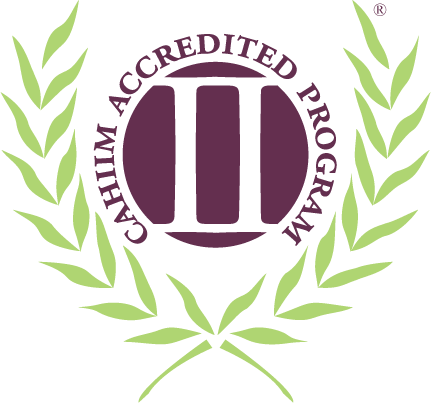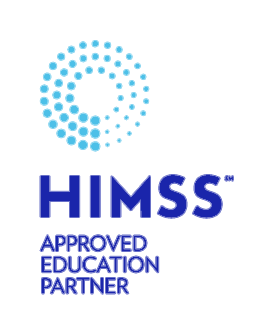



Nation's only freestanding informatics school

100% online programs available

Faculty are industry thought leaders

Scholarship funding available

Part-time or full-time enrollment
GRADUATE PROGRAMS
Graduate Certificate in Biomedical Informatics
Graduate Certificate in Applied Biomedical Informatics
Graduate Certificate in Public Health Informatics
Master of Science in Biomedical Informatics
Doctor of Philosophy in Biomedical Informatics
Doctorate in Health Informatics
Dual Degree Programs
What is Biomedical Informatics?
Biomedical Informatics studies the acquisition, storage, communication, processing, integration, analysis, mining, retrieval, interpretation, and presentation of data and determines how to transform data (meaningless symbols) to information (interpreted data), to knowledge (validated information), and to intelligence (actionable knowledge), with the aim of solving problems in disease prevention, healthcare delivery, and biomedical discovery.
Biomedical informatics covers the entire spectrum of biological scales—from small molecules, genes, proteins, and cells, to tissues and organs, to individuals and populations. Biomedical informatics is a highly interdisciplinary field focused on collaborations with partners in clinical practice (e.g., medicine, nursing, dentistry, pharmacy, population health, etc.); the biomedical sciences; public and community health; computer science and engineering; mathematics and biostatistics; cognitive science; the social and behavioral sciences; healthcare management; and health IT policy and law.
PROGRAM HIGHLIGHTS
| Programs | Online | In-Person Instruction | TX Resident Tuition Only | Hours | GRE Required |
|---|---|---|---|---|---|
| Certificate & 4+1 | Yes | Yes (optional) | $3,855 | 15 | No |
| Masters - Research | Yes | Yes (optional) | $10,023 | 39 | No |
| Masters - Applied | Yes | No | $10,023 | 39 | No |
| PhD | No | Yes (required) | $23,901 | 93 | Yes |
| DHI | Yes | Once a semester | $16,191 | 63 (96 without a MS) | No |
ADMISSION DEADLINES
| PROGRAM | FALL | SPRING | SUMMER |
| Certificate | July 1 | November 1 | March 1 |
| Master's | July 1 | November 1 | March 1 |
| PhD | December 1 | July 1 | N/A |
| DHI | March 1 | Only one DHI cohort will be admitted annually. | |
COURSES AT McWILLIAMS...
BMI 6323 Data Mining in Biomedical Informatics (Machine Learning)
(classroom instruction)
2 hours lecture/3 hours laboratory
3 semester credit hours/meets part of advanced informatics competencies
The increased digitization of biomedical data has dramatically increased interest in methods to analyze large quantities of data. Data mining is the process of transforming this raw data into actionable knowledge, which has led to many spectacular advances in biomedicine. This course provides an introduction to data mining methods from a biomedical perspective. The primary focus will be on practical and commonly used machine learning techniques for data mining (e.g., decision trees, support vector machines, clustering) and how these techniques transform data into knowledge. Students will engage in hands-on projects that expose them to data mining methods.
BMI 7151 Seminar in Precision Medicine
1 semester credit hour
Lecture contact hours: 1
Prerequisites: Consent of instructor
Seminar in Precision Medicine will introduce and discuss recent advances, frontier technologies, case studies, and future direction in precision medicine. The topics cover precision medicine, bioinformatics, systems biology, pharmacogenomics, genetics, genomic medicine, study design, methodologies and computational tools. Students enrolled in the course for credit are required to give a seminar presentation, attend at least 80% of the weekly seminars, and fill out evaluation forms. Each student seminar must be supervised by a faculty member (not necessarily the student's advisor). The faculty member will work with students to ensure that the seminars are both appropriate and interesting for the audience.
BMI 6340 Health Information Visualization and Visual Analytics
(web-based and classroom instruction)
3 semester credit hours/meets part of research informatics components
This course introduces the basics of information visualization, which is the use of interactive visual representations of data to amplify human cognition. Properly constructed visualizations allow us to analyze data by exploring it from different perspectives and using the power of our visual system to quickly reveal patterns and relationships. This course uses practical, hands-on examples and exercises to teach the theory and application of information visualization for health data. The class emphasizes visual analysis of time-series data, ranking and part-to-whole relations, deviations, distributions, correlations, multivariate, and geographic data. You will also learn how to combine multiple visualizations into interactive dashboards and how to use Tableau, a state-of-the-art information visualization tool to produce and deliver visualizations and dashboards quickly and easily.
BMI 6318 Big Data in Biomedical Informatics
(web-based instruction)
3 semester credit hours/meets part of the advanced informatics competencies
Prerequisites: Consent of instructor
This course will expose students to 'Big Data' projects in biomedicine and healthcare. Through real-world examples we will explore the challenges and success faced by initiatives to improve health care delivery through big data projects. Specific topics may include but are not limited to the V's of Big Data (volume, velocity, variety, veracity, and value), data analytics, accountable care organizations and population health management.
BMI 5313 Introduction to Electronic Health Records
Lecture contact hours: 2; Lab contact hours: 3
(web-based and classroom instruction)
3 semester credit hours/meets part of basic informatics components
This course is designed to provide informatics students with an overview of the key concepts regarding implementation of a clinically-oriented information system (e.g., an electronic medical record, computer-based provider order entry). The course will examine how health data are collected, how they are used and the impact of electronic records on the health data. The course will review standards, standards development, languages used, usability and issues related to information processing in health care. The course will review the impact of electronic records and patient portals on health and health care including, legal, financial, and clinical design issues. Challenges encountered during training and go-live will be discussed. Students will receive hands-on experience with an electronic health record in the training environment.
BMI 5007 Methods in Health Data Science
3 semester credit hours
Lecture contact hours: 2; Lab contact hours: 3
Web-based and classroom instruction
Prerequisite: Prerequisite quiz and Consent of instructor
Lab Fee: $30
The course introduces methods in health data science – defining the problem, accessing, and loading the data, formatting into data structures required for analysis. This course covers the basics of computational thinking to define a computational solution, methods to access healthcare data from variety of sources (EHR data, UMLS, Medline, etc.), and in different data formats. The students will apply methods for data wrangling and data quality assessments to structure the data for analysis.
BMI 5380 Principles and Foundations of Public Health Informatics
(web-based and classroom instruction)
2 hours lecture/3 hours laboratory
3 semester credit hours/meets part of the basic informatics competencies
This course provides foundational knowledge relevant to Public Health Informatics (PHI), and exposes students to emerging research and application areas in this field. Topics covered include: public health registries and databases, surveillance systems, data exchange and standards, interoperability issues, the role of informatics in health promotion, use of web 2.0 informatics tools to understand behavior change, public health communication and dissemination, public health policy, and project management.
BMI 6308 Digital Technologies and Analytics for Personalized Health
3 semester credit hours
Lecture contact hours: 2; Lab contact hours: 3
Web-based
Prerequisites: BMI 5300 or Concurrent Enrollment
Lab Fee: $30
Digital technologies have been gaining popularity in personal health and wellness. A plethora of mobile and connected platforms, patient centered solutions are poised to transform the role of public, care providers, and health systems. The key driving forces of this digital era are personalized health data and advanced analytics.
BMI 5330 Introduction to Bioinformatics
(web-based and classroom instruction)
3 semester credit hours/meets part of basic informatics competencies
The course gives a comprehensive entry-level introduction to bioinformatics. It covers a wide variety of topics in bioinformatics, including but not limited to sequence analysis, protein structure, genome analysis, database and transcription profiling. Two major goals are 1) to help students understand the scope, basic concepts and theory of bioinformatics; and 2) to become familiar with tools for bioinformatics-related data analysis. Programming skills are not necessary.
BMI 5302 Cognitive Science in Biomedical Informatics
(web-based instruction and classroom instruction)
(2 hours lecture/3 hours laboratory/week lecture/demonstration/discussion)
3 semester credit hours/meets part of basic informatics component
This course is an introduction to cognitive science – the interdisciplinary study of mind and behavior from an information processing perspective – and its application to biomedical informatics. The course begins with a basic introduction to human cognition and information processing (both symbolic and connectionist), then presents a broad survey of the biomedical informatics areas to which cognitive science has been applied. These areas include health problem solving and education, decision support systems, user-centered interfaces, and the design and use of controlled medical terminologies.
BMI 5328 System Analysis and Project Management
(web-based instruction) 3 semester credit hours
This course is an introduction to both systems analysis and project management. The student will have the opportunity to learn more about the approaches and tools available for systems analysis. Additionally, the student will learn more about the roles, responsibilities, and duties of a project manager. Moreover, the student will learn project management methods and core activities of a project manager as well as the tools and techniques required to ensure the success of a large healthcare information technology project such as the implementation of a system or the evaluation of an existing system. Specific emphasis will be on training and support during go-live, total costing of projects, and explicit change management techniques.
BMI 5004 Introduction to Clinical Healthcare
(2 hours lecture/3 hours laboratory/week lecture/demonstration/discussion)
3 semester credit hours/meets part of the basic informatics competencies
Prerequisites: Consent of instructor
This course will present a survey of modern American clinical health care for students without a health care background who are entering fields that interact with health care such as biomedical informatics, cancer biology, and translational science. It is not a health care system course and is not intended to teach students how to practice medicine. The course is not appropriate for students who have a health care background (e.g., international medical graduates). We will focus on how clinical health care is delivered, rather than on health care financing, administration, regulation or governance. Students will attend lectures and “mini rotations” during which they will visit operational health care settings including outpatient clinics (pediatric and adult), emergency departments, intensive care units, clinical research and surgical settings.
